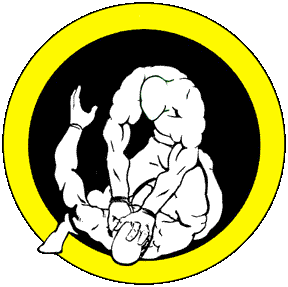Summers Abroad Keep Kulczycki Focused On the Mat and on World Issues
Posted on | October 17, 2011 | No Comments

PROVIDENCE, R.I. – Two years ago, Brown junior wrestler Zack Kulczycki (Urbana, Ill.) spent the summer studying in St. Petersburg, Russia through the study abroad program offered by Brown University at the Nevsky Institute of Language and Culture, while also training at the Komplexnaya Shkola Vyshevo Sportinivnogo Masterstva, or in English, the Integrated School of High Mastery of Sports. There, some of the best wrestlers, judoists, samboists and boxers train. Kulczycki has now made it two summers in a row, learning and training abroad.
“I was fortunate to befriend two brothers, Chermen and Alan Tibilov, as well as several other wrestlers with whom I spent a great deal of time outside of training,” said Kulczycki.
Although Chermen could speak some English our conversations were primarily in Russian, forcing me to use what I had learned in real life situations. At the end of the summer of 2010, we had become so close that they invited to me to return in the summer of 2011 to South Ossetia in the Caucasus Mountains, to live with their family and train.”
The Caucasus region is analogous to Iowa, where wrestling is a central part of culture and life for those that live there. Historically, the best wrestlers from Russia come from the Caucasus republics such as Ossetia-Alania, Dagestan and Chechnya. This region produces so many wrestlers that they often move to other nearby countries such as Ukraine, Uzbekistan and Turkey to represent them in the World Games and Olympics. In addition, there are many other international athletes that travel to this small region to experience the best competition in the world.
In the summer of 2008, while the rest of the world was watching the opening games of the Olympics in Shanghai, war broke out between Georgia and Russia in South Ossetia. In nine days nearly one thousand people died and nearly 158,000 were displaced. Following the war, South Ossetia was recognized by Russia as an independent country, however not by the United States, which still saw it as part of Georgia. Because of the difficult relations between the US and South Ossetia, Kulczycki would not be able to enter the newly independent nation and then return to Russia to fly home.
“Making the best of the situation we decided, upon the invitation of another friend, to go to a training camp two hours south of St. Petersburg, near the city of Luga,” stated Kulczycki. “The director of the camp warned me that the accommodations may not be as good as I was used to in America, however with wrestling being a sport in which all you really need is your body and mind, I was not too worried.”
Kulczycki spent the summer months in a small cabin without plumbing in the forest along with judoists, Greco-roman wrestlers, and samboists. The trainees would run through the forest and swim before breakfast, wrestle or lift around noon before lunch, then run and swim again before dinner.
A month of training and the outdoors without any worries of school or work is something that any wrestler would enjoy even without modern conveniences of television or internet. On Sunday, the campers would rest and go to the “banya,” which is hotter than a normal sauna. The trainees were also beaten and whipped with bundles of dried birch and oak leaves.
“Although it doesn’t sound fun, it actually is. You leave feeling refreshed and relaxed,” stated Kulczycki.
“Overall my experience was much more than a month worth of wrestling. I got to live not as a visitor in a foreign country, but as everyday people do,” remarked Kulczycki. “My language skills improved greatly and so did my understanding and appreciation of the culture and life in Russia. I also made life-long friends that I will never forget. It was an invaluable experience that I would not trade for anything and I hope greatly that I can repeat.”
While the trip did serve as a learning experience in the culture and history of a foreign country, as well as a crash course in Russian, it provided a time for training and furthering skills on the mat and enhancing one student-athletes world view.
Scott Casber
Founder/Host
Takedown Wrestling Radio and TV
USA Wrestling Weekly
515-707-8657
Tags: Auto > brown university > caucasus mountains > caucasus region > caucasus republics > Chechnya > Dagestan > draft > integrated school > international athletes > language and culture > life situations > nearby countries > nevsky > shanghai > south ossetia > st petersburg russia > two brothers > two summers > urbana ill > world games > wrestlers



